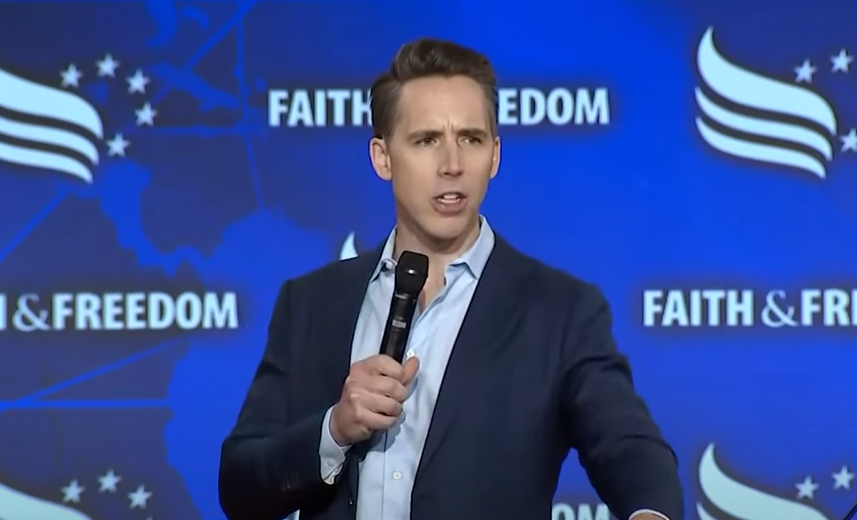Senator Josh Hawley, representing Missouri, is renewingly advocating for a legislative act aimed at prohibiting members of Congress and their spouses from engaging in stock trading while serving in office. Initially introduced last year as the “PELOSI Act,” the legislation has gained traction among bipartisan lawmakers, along with endorsement from prominent political figures including former President Donald Trump. The proposed law seeks to restore public trust in government institutions by preventing legislators from leveraging privileged information for financial gain.
| Article Subheadings |
|---|
| 1) Legislation Overview |
| 2) The Role of Public Perception |
| 3) Legislative Challenges and Support |
| 4) Implications of the PELOSI Act |
| 5) Future Prospects |
Legislation Overview
The reintroduced “PELOSI Act” seeks to ban members of Congress, along with their spouses, from buying, selling, or holding stocks during their tenure in office. This proposed measure would only permit lawmakers to invest in diversified mutual funds, exchange-traded funds, or U.S. Treasury bonds. If enacted, existing lawmakers would be given a 180-day grace period to comply, while newly elected officials would be required to adhere to the regulations within six months following their induction.
According to Senator Hawley, the legislation aims to guarantee that policymakers prioritize their responsibilities towards constituents over personal financial gains. The law would not only enforce compliance but also impose stringent penalties for violations. Lawmakers found conducting wrongful transactions would have to surrender their profits to the U.S. Treasury and might also face fines of up to 10% of the wrongful transaction value.
The Role of Public Perception
Public trust in government is often at risk when perceptions of corruption prevail. The ongoing narrative that politicians may enrich themselves using non-public information has led to growing discontent among voters. Senator Hawley emphasized that “Americans have seen politician after politician turn a profit using information not available to the general public.” He called for an immediate end to this practice, insisting that elected officials should not engage in activities that create conflicts of interest or appear unethical.
Recent surveys indicate a substantial majority of voters support legislation limiting stock trading by lawmakers. The wave of confidence among constituents mirrors a broader desire for accountability within visible government roles. Proponents of the act, like Senator Hawley, believe that not only will this enhance trust in Congress, but it could also help to curb the influence of money in politics.
Legislative Challenges and Support
Despite gaining bipartisan support, the path for the PELOSI Act is fraught with challenges. The bill originally stumbled during the Biden administration, reflecting the deeper divisions within Congress. Nevertheless, newfound backing from prominent figures, including former President Trump, has reignited discussions around the ban.
Leaders across both parties, including the House Minority Leader Hakeem Jeffries, have also expressed support for limiting stock trading among legislators. In an interview, Trump remarked, “I watched Nancy Pelosi get rich through insider information, and I would be okay with it,” implying that he would endorse a trading ban if proposed legislation reached his desk.
This convergence of support from both sides of the political spectrum could potentially create the necessary momentum for legislative success. Observers note that as public scrutiny increases, the chances of passing the PELOSI Act may improve.
Implications of the PELOSI Act
The enactment of the PELOSI Act could fundamentally alter how elected officials manage their financial interests while serving. By eliminating stock trading, the act aims to discourage personal gain derived from governmental roles, thus restoring integrity to public service.
Moreover, the act intends to reshape the landscape concerning conflict-of-interest regulations, creating a precedent for further ethics reforms in Congress. As more lawmakers consider the implications of stock trading, it may prompt necessary discussions surrounding broader ethical governance and accountability measures.
Future Prospects
Looking ahead, the future of the PELOSI Act remains uncertain but not without promise. The increasing momentum for political reform paired with rising public demand for ethical governance places significant pressure on Congress to act decisively.
As legislative sessions continue, the act is likely to remain a focal point of debate. If passed, the implications could extend beyond stock trading—spurring comprehensive discussions around ethical behavior in Congress. Observers emphasize that persistent advocacy will be crucial in navigating the legislative landscape and ensuring that this proposed reform does not succumb to political gridlock.
| No. | Key Points |
|---|---|
| 1 | Senator Josh Hawley is reintroducing the “PELOSI Act” to ban stock trading for Congress members. |
| 2 | The legislation has garnered bipartisan support, including endorsements from former President Trump. |
| 3 | Under the act, lawmakers would be required to divest their stocks within 180 days of enactment. |
| 4 | Violations would incur significant penalties, including profit surrender and fines. |
| 5 | Public perception of ethics in Congress is a crucial factor in the bill’s potential success. |
Summary
The renewed effort to pass the PELOSI Act illustrates the growing demand for heightened ethical standards in governmental roles. As both constituents and lawmakers increasingly recognize the implications of stock trading in politics, the legislation aims to impose limitations that could significantly reshape the public’s trust in Congress. Whether the act successfully navigates legislative hurdles remains to be seen, but its significance in the ongoing dialogue surrounding political ethics cannot be overstated.
Frequently Asked Questions
Question: What does the PELOSI Act propose?
The PELOSI Act aims to ban members of Congress and their spouses from trading stocks while in office, allowing only investments in diversified mutual funds, exchange-traded funds, or U.S. Treasury bonds.
Question: How would the act enforce compliance?
If passed, lawmakers would have 180 days to comply. Those who violate the law would be required to hand over any profits made from wrongful transactions and could face fines imposed by ethics committees.
Question: What support does the PELOSI Act have?
The act has gained bipartisan support among lawmakers, including endorsements from former President Trump and House Minority Leader Hakeem Jeffries.


